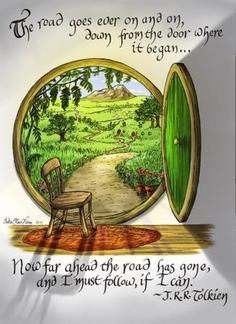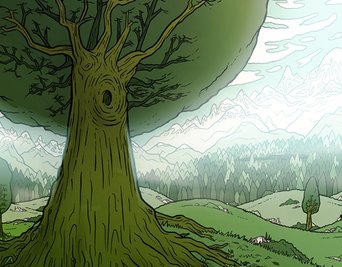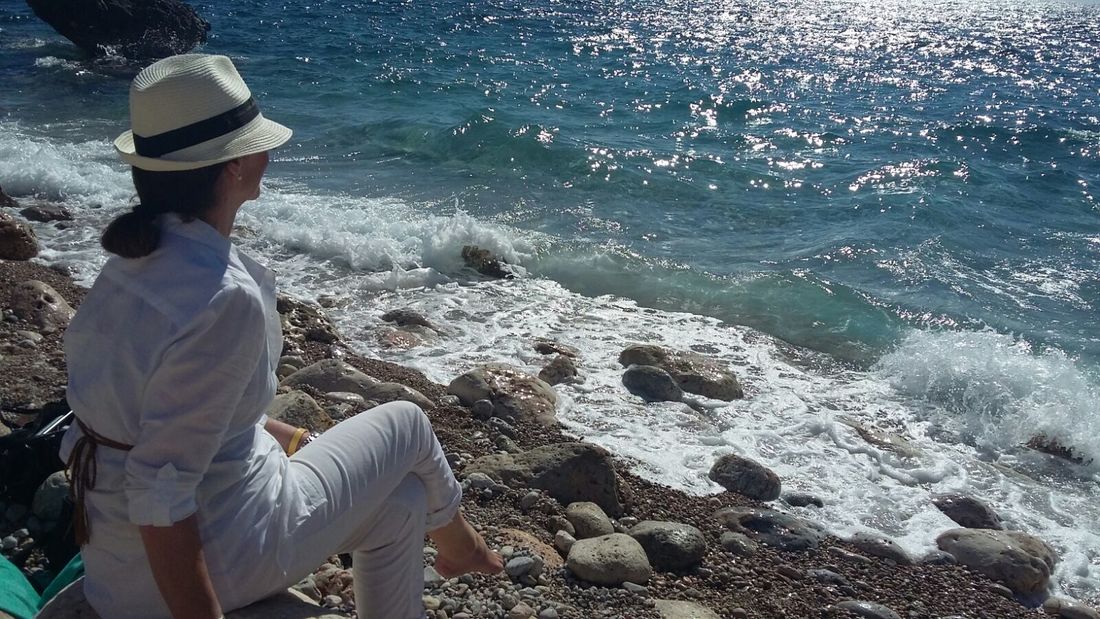Anne Maria Clarke explores Tolkien's Master-class
The realm of fairy-story is wide & deep & high. In that land one may perhaps count oneself fortunate to have wandered but its very mystery & wealth make dumb the traveller who would report. The fairy gold too often turns to withered leaves when it is brought away. All that I can ask is that you – knowing all these things - will receive my withered leaves as a token at least that my hand once held a little of the gold.
J.R.R Tolkien – On Fairy -stories (draft manuscript)

He leaves the whole thing utterly open ended aside from the following provisos: first that though the Perilous Realm contains familiar aspects derived from what he calls our primary, everyday reality – this secondary realm – in order ‘to work’ or to be ‘believable’ - must be totally consistent within itself – & that the magic therein must never ever be belittled or made fun of.
In 1939, based upon the immense success of The Hobbit which had been published in 1937 Tolkien was asked to give a lecture for the Andrew Lang society at the University of St Andrews, for which the article On Fairy-stories was written & first presented. There were numerous drafts – as was Tolkien's way -& the opening quote referencing the fairy gold was omitted from his final version possibly on the grounds of it being thought too presumptuous a revelation to make about himself - & yet it so perfectly elucidates the nature of his travels within the Faërie Realm that it seems pertinent to re-instate it – for you see – this is where he spent so much of his time – after attending Mass, which he did several times a week, after his job was done, his dinner enjoyed with his family, his children read to and put to bed in his ordinary, everyday Oxfordshire home – this is where he would go, puffing on his evening pipe, deep into the great beyond - often not returning until the early hours of the morning.
So when we read his wondrous tales, or contemplate the words he wrote On Fairy-stories we would do well to remember that what we are really reading or listening to are the words of an incredibly seasoned traveller – someone who has walked wherever his heroes and heroines have walked – all the way out of the Shire, if you like, right through Middle Earth to Mordor & back again, bringing not just faded, withered leaves as he so humbly acknowledges - but real fairy gold, bright & true and radiant as
the sun.
DEFINITIONS
On Fairy-stories poses a series of questions which Tolkien considers in turn, teasing out the elements of what for him constitutes an authentic tale within the genre.
He begins by setting forth the Oxford Dictionary definition (a publication he worked for briefly as a Philologist after recovering from trench fever following his return from France in 1916) yet he disagrees vehemently with every word set down. ….. Fairies he asserts are not diminutive in size as is commonly assumed – it is us who are small compared to them! Nor, surprisingly for some, did he consider the tales as being primarily for children – the association he regarded as being an unfortunate consequence of the so called 'Enlightenment.' His own taste for such tales was not a characteristic of his childhood he says but was awakened through his study of Philology and quickened to life by war.
What then constitutes an authentic tale in this genre? Certainly not those stories he claims, that whilst fantastical in themselves are presented as dreams, or time – travel adventures or journeys to far flung destinations in the primary world. Neither does he consider allegory or tales of moral guidance set within a once upon a time frame authentically of the genre.
They are not delusions, illusions or manifestations of mental pathology in any way.
No! Faërie is an altogether different realm with an ontology all of its own.
In that world a tree is a Tree, and its roots may run throughout the earth, and its fall affect the stars. It is enchanted ..... as we are when we cross its borders.
J.R.R Tolkien – On Fairy -stories

The origin he tells us, is simply the dimension of Faërie itself and the stories, as indicated – of those writers, artists, bards, shamans, healers and plain ordinary folk who have ventured forth.
Such realms are not simply made up as is commonly assumed but rather possess their being-ness independently – of this he is quite clear.
They arose in my mind as 'given' things, he wrote to his son Christopher,and as they came, separately, so too the links grew. An absorbing, though continually interrupted labour. Yet always I had the sense of recording what was already 'there', somewhere: not of inventing.
A new character has come on the scene, he explains, I am sure I did not invent him, nor even want him? though I like him – but there he came, walking out the woods - he is so talkative - if he keeps on in this way I will have to put him in the appendices.
J.R.R.Tolkien: Letters

